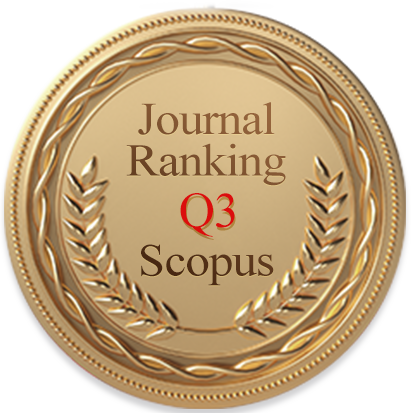
Organic Farming (OF) is an innovative journal dedicated to enriching the field of organic agriculture and sustainable food production. It stands out by providing a comprehensive exploration of organic farming, covering soil and plant management, pest and disease control, and the sustainability of resources such as soil, water, and biodiversity. OF serves as a critical platform for sharing advancements and insights in organic practices, food quality, marketing strategies, and the policy landscape affecting organic production. The journal emphasizes the importance of interdisciplinary and trans-disciplinary research, offering fresh perspectives on how organic farming contributes to environmental sustainability, food security, and socio-economic development. Published by Acadlore, OF releases its findings to the academic and practical agriculture community with four issues each year in March, June, September, and December, aiming to facilitate meaningful discussions among scientists, farmers, policymakers, and consumers engaged in the organic movement.
Professional Service - Every article submitted undergoes an intensive yet swift peer review and editing process, adhering to the highest publication standards.
Prompt Publication - Thanks to our proficiency in orchestrating the peer-review, editing, and production processes, all accepted articles see rapid publication.
Open Access - Every published article is instantly accessible to a global readership, allowing for uninhibited sharing across various platforms at any time.
Organic Farming (OF) is an innovative journal dedicated to enriching the field of organic agriculture and sustainable food production. It stands out by providing a comprehensive exploration of organic farming, covering soil and plant management, pest and disease control, and the sustainability of resources such as soil, water, and biodiversity. OF serves as a critical platform for sharing advancements and insights in organic practices, food quality, marketing strategies, and the policy landscape affecting organic production. The journal emphasizes the importance of interdisciplinary and trans-disciplinary research, offering fresh perspectives on how organic farming contributes to environmental sustainability, food security, and socio-economic development. Published by Acadlore, OF releases its findings to the academic and practical agriculture community with four issues each year in March, June, September, and December, aiming to facilitate meaningful discussions among scientists, farmers, policymakers, and consumers engaged in the organic movement.
Professional Service - Every article submitted undergoes an intensive yet swift peer review and editing process, adhering to the highest publication standards.
Prompt Publication - Thanks to our proficiency in orchestrating the peer-review, editing, and production processes, all accepted articles see rapid publication.
Open Access - Every published article is instantly accessible to a global readership, allowing for uninhibited sharing across various platforms at any time.
Aims & Scope
Aims
Organic Farming (OF) aspires to serve as a leading platform for the dissemination of ground-breaking research and innovations in organic agriculture and food systems. Our journal's mission is to foster a rich scholarly and practical dialogue on advancing organic farming practices that enhance sustainability, biodiversity, and food security in the face of global environmental challenges. By integrating a multidisciplinary approach, OF aims to bring together natural sciences, social sciences, and practical agricultural methodologies, synthesizing diverse perspectives to address the complex dimensions of organic farming and food production. The journal prioritizes research that delivers actionable insights for farmers, researchers, policymakers, and consumers, promoting practices that contribute to the sustainability of the ecosystem and social equity. OF encourages submissions that explore both theoretical underpinnings and empirical implementations of organic farming, aiming for a comprehensive understanding without constraints on manuscript length. Highlights of the journal include:
Every publication benefits from prominent indexing, ensuring widespread recognition.
A distinguished editorial team upholds unparalleled quality and broad appeal.
Seamless online discoverability of each article maximizes its global reach.
An author-centric and transparent publication process enhances submission experience.
Scope
OF's scope is broad and inclusive, covering all aspects of organic agriculture and sustainable food systems. The journal invites contributions that address a wide range of topics within this domain, including but not limited to:
Agroforestry Systems and Biodiversity Conservation: Investigating the integration of trees and shrubs into agricultural landscapes to support biodiversity, enhance ecosystem services, and contribute to carbon sequestration. This approach not only promotes ecological balance but also improves the overall resilience of agricultural systems.
Sustainable Crop and Livestock Management: Research on innovative crop rotations, green manures, biological pest control, and sustainable livestock management practices aimed at improving soil health and reducing environmental impact. This includes the veterinary aspects of organic livestock production, ensuring animal health and welfare while minimizing the need and use of antibiotics.
Organic Food Quality and Processing: Studies focusing on methods that ensure the high nutritional value and safety of organic food, emphasizing minimal processing techniques to retain the original quality and nutritional value of the food.
Soil and Water Protection: Comprehensive research on organic farming practices that preserve soil integrity and water quality, including effective strategies for compost and manure management, nutrient cycling to minimize loss and pollution.
Circular Economy and Energy Production in Organic Production: Exploring waste reduction, resource recycling, energy efficiency, and self-sufficiency in energy through biomass energy production within the organic farming sector.
Policies, Certifications, and Consumer Acceptance: Evaluating the regulatory frameworks, certification processes, and market dynamics affecting the organic sector, especially how they impact consumer choices and industry standards.
Innovative Breeding Techniques for Organic Agriculture: Research on plant breeding and genetics tailored to the needs of organic farming, promoting crop diversity and resilience to adversities.
Ecosystem Services and Climate Resilience: Examining the role of organic farming in enhancing ecosystem services, mitigating climate change impacts, and fostering climate adaptability and resilience.
Social Aspects and Marketing of Organic Products: Analysis of social acceptance, consumer preferences, ethical considerations, and effective marketing strategies for organic products, ensuring market acceptance and growth.
Technological Advances in Organic Farming: Examination of the role of technology, including ICT, AI, and remote sensing, in improving organic farming practices and monitoring environmental impacts.
Urban Organic Farming and Food Systems: Investigating the development and integration of organic farming practices in urban areas to support local food systems and urban sustainability, promoting urban-rural interaction.
Global Organic Trade and Market Trends: Analysis of global trade dynamics, market trends, and the economic viability of organic farming, as well as how to adapt to changing international market demands.
Organic Farming and Rural Development: Exploring the impact of organic farming on rural communities, especially in terms of poverty alleviation, economic development, and social equity. This includes studying how organic farming can provide sustainable livelihoods for rural residents and enhance their economic resilience through improved production efficiency and market access.
Interdisciplinary Approaches to Organic Farming Research: Encouraging the use of interdisciplinary and cross-disciplinary approaches to address the complex challenges in organic farming, integrating knowledge and techniques from ecology, agricultural science, social science, economics, and more.
Regenerative Organic Agriculture: Research on regenerative organic practices that go beyond sustainability, actively improving soil health, biodiversity, and overall ecosystem resilience through more proactive approaches to restoring and enhancing the productive capacity of natural resources.
Organic Farming Policy and Advocacy: Evaluation of policy initiatives, advocacy strategies, and legislative frameworks that support the growth and development of organic agriculture worldwide, including how effective policy environments can be formed to promote the sustainable development and expansion of organic farming.
Education and Training in Organic Agriculture: Exploring the importance of education, training, and extension services in promoting organic farming practices among new and existing farmers, including how education and capacity building can improve farmers' understanding and application of organic farming techniques.
Tillage and No-Tillage Organic Farming Systems: Delving into the application of tillage and no-tillage management practices in organic farming, including how these methods affect soil health, crop yield, and ecosystem services.
Weed Ecology and Management: Researching the ecological characteristics of weeds in organic farming systems and their management strategies, exploring how to control weeds effectively through eco-friendly methods while maintaining or enhancing farmland biodiversity.

Abstract

Abstract

Abstract

Abstract

Abstract

Abstract

Abstract

Abstract

Abstract

Abstract





